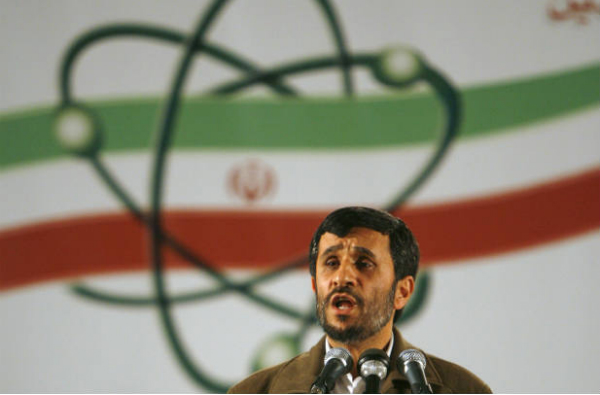By: Christopher Friesen
Last week the Conservative party of Canada showed less ideological restraint in their foreign policy than Saudi Arabia or Hamas, and the world hardly batted an eye. The U.S. struck a six-month deal with Iran that involves a gradual reversal of its nuclear weapons program. In exchange the U.S. will repeal a small portion of the economic sanctions its levied on the country since 2005.
Every country in the international community took the deal to represent a positive step in bringing Iran back from the hostile and insular nation it has become—every country except two, that is. Israel’s president called the agreement a “historic mistake,” while Canada’s foreign affairs minister John Baird said “past actions best predict future actions… simply put Iran has not earned the benefit of the doubt.” He also confirmed that Canada’s sanctions in Iran will remain in “full force,” and that they will not re-open the Canadian embassy in Tehran. This, despite the fact that the agreement contains provisions for U.N. monitoring of Iran’s nuclear facilities, making ‘trust’ largely irrelevant; and also that in 2013 73 per cent of the voting eligible population cast their ballet in a decisive victory for president Rouhani, who campaigned on a new direction for Iran’s nuclear program.
This did not surprise me in the least. The Conservative government’s foreign policy in the Middle East, like Iran’s, is insular and hostile. What started with unnecessarily blunt pro-Israel rhetoric and evolved into a suffering international reputation as an ideologue—eventually culminated in our ouster from the U.N. security council, which all analysts (and even Harper himself) put down to our demeanour in the Middle East. Things haven’t cooled down since, either.
Last year Canada was one of only nine nations (out of a total 188) who voted against Palestine’s UN statehood bid—a move which, again, all other nations saw as an undeniably positive step towards a two state solution in the Israeli-Palestinian conflict. Most recent was Harper’s armchair self-righteousness against Sri Lanka, as he boycotted the Commonwealth conference because of the country’s treatment of the Tamil minority. Of course there’s sometimes an argument to be made for a boycott—but not when the event you’re boycotting has ‘potential to devolve into a human rights debate’ written all over it. UK Prime Minister David Cameron discerned this, and was able to directly challenge the Sri Lankan government in person over their actions on this issue.
But back to the Saudis, who are undoubtedly ill at ease with the idea of thawing Iran-US relations—of not having a seat at the negotiating table while deals are drawn up that could not only shape the balance of power in the region, but stir up percolating self-determinism in their Shiite minority. Yet, at the same time, the Saudi government came out as cautiously supportive of the agreement. Meanwhile the reaction of Hamas leaders has varied—some highlighting optimism, and others chiding them for having anything to do with ‘The West’. I tried to find an instance of a single Conservative MP going on record with anything resembling optimism about the deal… only to come up short. Although it’s only relative, this felt like a new low—frankly, when Saudi Arabia and Hamas are the nuanced, level-headed envy of your government’s Middle East policy, you know you have problems.
Well, at least we can always count on cozy rhetoric at home. Recently Joe Oliver (natural resources minister) said he actually thought Canada’s global influence “had been enhanced”, and that his government’s Middle East policy hadn’t affected them at all. He insisted their tact is simply a reflection of the government’s “moral clarity,” only to go on to say, “they’re [still] selling their oil to people who want to buy it.” That “moral clarity,” that governs our foreign relations was out in full force later on in the week too, as trade minister Ed Fast revealed the “Global Markets Action Plan”, a wide-reaching play at changing the entire culture of the foreign service Canada—essentially a blueprint for how to turn every Canadian foreign diplomat into a salesman.
As the effects of climate change accumulate, and as emerging markets rise in prominence amid an unbalanced and already-precarious global financial system, the years to come are going to require more multi-lateralism and global consensus building than ever before. As such this seems an especially inopportune time for our country to be lead by a group whose diplomatic skills were exemplified earlier this month by their leader, who, in addressing those critical of his self-interested flushing of senators replied: “I couldn’t care less.”
___
